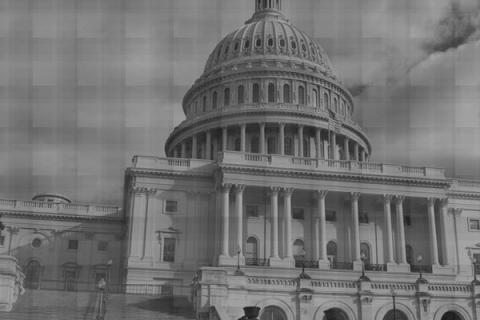Despite the influence of small government advocates like those in the Tea Party movement, the size, role, and influence of government on a federal, state, and local level is set to grow significantly in 2012. According to the National Conference of State Legislatures (NCSL), about 40,000 new laws will go into effect in 2012, and that doesn't include laws and provisions within laws that will also take effect this year on a federal level. Though in some ways, some of the new laws to take effect might put the brakes on some areas of public spending.
The NCSL reports:
"In 2011, all 50 states and territories met in regular session and enacted close to 40,000 new laws on issues across the board. Laws do not always become effective on Jan. 1, however. State constitutions or statutes usually establish when they go into effect, or sometimes, an effective date is written into the specific piece of legislation."
What areas of life will the new laws touch upon? Everything. From the sale of shark fins, to hiring practices, to the use of tanning beds, and raising minimum wage laws, all 40,000 new laws cover a broad range of human action and public policy. Eight states-- including Arizona, Oregon, Washington, Montana, Colorado, Ohio, Vermont and Florida-- will be raising their minimum wage. Keeping pace with inflation, San Francisco will be the first U.S. city to raise minimum wage over $10/hour.
Among new laws to take effect in 2012, various state remedies to immigration-related problems indicate major concern over immigration policy and could suggest a vacuum of federal influence or discontent with the lack of comprehensive immigration reform on a federal level. Several states are toughening up hiring requirements, including the use of an electronic verification system to prove that employees are in the country legally. California is addressing illegal immigration with the California Dream Act, which expands eligibility for scholarships and financial aid to students who were brought into the country illegally when they were infants.
Legislation will also take effect in many states to address fiscal problems and close up budget gaps. Public spending and public pensions in states with fiscal woes were a contentious issue throughout 2011, with many pension programs getting squeezed by budget-cutting legislatures and public workers being required to contribute more to their own retirement accounts. In Delaware for example, state workers will be contributing more to their pensions each month, and in Nevada, state workers hired after January 1st of this year will have to cover their own health care costs during retirement.
Looking through the National Conference of State Legislatures' list of highlights from the 40,000 new laws that will take effect in 2012, it's hard not to notice the preponderance of California laws featured there. Californians will be affected by several legislative changes in 2012, including a new ban on K2 (a popular synthetic substitute for marijuana), another ban on the sale of alcoholic beverages to which caffeine has been added, a law restricting the sale of shark fins, the addition of "gender identity" and "gender expression" to the list of protected groups under Fair Employment and Housing Act, a prohibition on the use of tanning devices by minors, stricter bail requirements for defendants extradited back to California from other states, and stricter cyber-bullying, domestic violence, and sex offense provisions.

